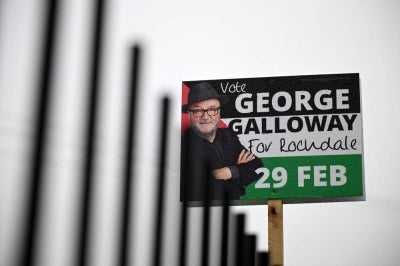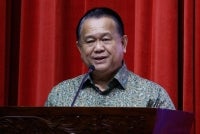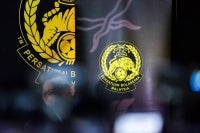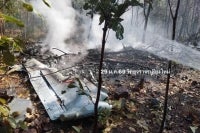Asean to rethink approach in Myanmar’s crisis
NIK LUQMAN WAN ZAINODDIN
Despite a series of crises and upheaval in the region, notably the intensified cross-strait tension emanated from the controversial visit of US Speaker Nancy Pelosi to Taiwan and Russia’s incursion of Ukraine, Myanmar’s crisis remained at the top of Asean’s agenda.
For a start, Myanmar’s military junta, officially referred to as the State Administration Council (SAC), executed pro-democracy activists a week prior to the Asean annual ministerial meeting which convened in Phnom Penh last week.
What more when the execution announcement was made only after days that Mr. Prak Sokhonn, Cambodia’s deputy prime minister and foreign minister, cum Asean special envoy just concluded his second to Myanmar, in his bid to operationalize a peace plan for the country.
The Asean ministerial meeting released a joint communique, which apparently indicated the bloc’s growing displeasure over the downward spiral situation in Myanmar.
For one, the Asean foreign ministers signaled a stern warning to the SAC that there will be new measures in place should there is no substantive progress in the implementation of the 5-point consensus (5PC).
The 5PC calls for an immediate cessation of violence, inclusive peace dialogue which invariably alludes to Aung San Suu Kyi, and unimpeded delivery of humanitarian aid.
For what it is worth, there is mounting pressure to suspend the regime from the regional bloc. Indeed, the junta’s intransigence has ruined Asean’s reputation and its 5PC plan.
The recent development shows the junta’s lack of will to support the chair’s continuous efforts to bring Myanmar into a state of normalcy.
It is clearly mentioned the lack of progress on the part of the junta in the communique: “We were deeply disappointed by the limited progress in and lack of commitment of the Nay Pyi Taw authorities to the timely and complete implementation of the Five-Point Consensus.”
Moreover, the wording also quoted Article 20 of the Asean Charter, which notes that further measures are to be decided by the Asean leaders regarding Myanmar’s quagmire.
“Towards this end, upholding the agreement of our Leaders at the 38th and 39th Asean Summits and consistent with Article 20 of the Asean Charter, we (Asean foreign ministers) recommended that the Asean Summit assesses the progress towards the implementation of the Five-Point Consensus by the State Administration Council to guide the decision on the next steps.”
Indeed, the Asean foreign ministers had employed an appropriate decision. The provision in Article 20 stipulates that “... the Asean Summit may decide how a specific decision can be made.”
The spirit behind this formulation is to provide a platform for a firmer decision to be made on sensitive issues in the region.
As a matter of fact, the Asean leaders are scheduled to attend the Summit sometime in November this year.
To this end, two points related to the protracted crisis in Myanmar in the communique that worth to be discerned. First, the Asean leaders will come up with new decisions regarding Myanmar’s status in the bloc.
Should substantial progress be made in the implementation of the 5PC however unlikely if current circumstances are of any indication, there may be positive outcomes in the new decisions.
Otherwise, the efforts to get Myanmar into the Asean ministerial-level meetings may be further delayed and Asean’s patience is indeed wearing thinner.
Taking a cue from Malaysia’s foreign minister Saifuddin Abdullah, Malaysia advocates for a clear endgame in Myanmar’s faltering peace process.
That is, to establish official engagement with National Unity Government (NUG), exiled elected lawmakers who were ousted in the coup staged by the SAC last year. And to mobilize efforts with extra-regional countries “into the fold” to ensure more coordinated efforts come to the fore.
Second, the grace period provided by Asean to the SAC until November must be taken as an opportunity to showcase meaningful implementation of the 5PC.
The onus is on Myanmar if the junta continues the systemic suppression in the country.
Constructive Engagement vs Offensive Engagement To be fair, Myanmar’s quagmire even predated its admission into Asean. In retrospect,
Myanmar’s entry into the bloc had attracted international condemnation back in the 90s.
This was due to Burma, as Myanmar was previously known, launched a large-scale crackdown on domestic opposition, which saw the Western countries retaliate with sanctions.
But Asean pursued its efforts to integrate Burma into the regional grouping despite Western backlash.
Asean was also of the view that Myanmar’s domestic dynamic would be in order once admitted into the Asean family.
This is what constitutes a constructive engagement. It means that interaction with Asean would encourage further political and economic reform undertaken in Myanmar.
On the one hand, the Western countries have invariably pursued another approach – isolation, sanctions, and pressure, or rather an offensive engagement.
Furthermore, previous Asean diplomats often faced a hard time fine-tuning between constructive and offensive engagements with Myanmar, especially when the international community invariably views Myanmar as a recalcitrant state in the region.
And it is an open secret that the junta has had a long history of banning from the international community, be it in diplomatic sanction, external pressure, and accountability for crimes against humanity.
Thus, fast-forward to the present time, maybe the time is now for Asean to rethink its approach given the junta’s lack of will to adhere to 5PC.
Any unprecedented hardline approach to Myanmar this coming November, it is vital to ensure the door of negotiations remains open. And that proper humanitarian assistance for Myanmar is still in place as humanitarian efforts are Asean’s top priority.
Nik Luqman Wan Zainoddin is a foreign affairs columnist and was a research fellow at IKMAS UKM-Nippon Foundation. He tweets @Nluqman
The views expressed in this article are the author's own and do not necessarily reflect those of Sinar Daily.
Download Sinar Daily application.Click Here!














